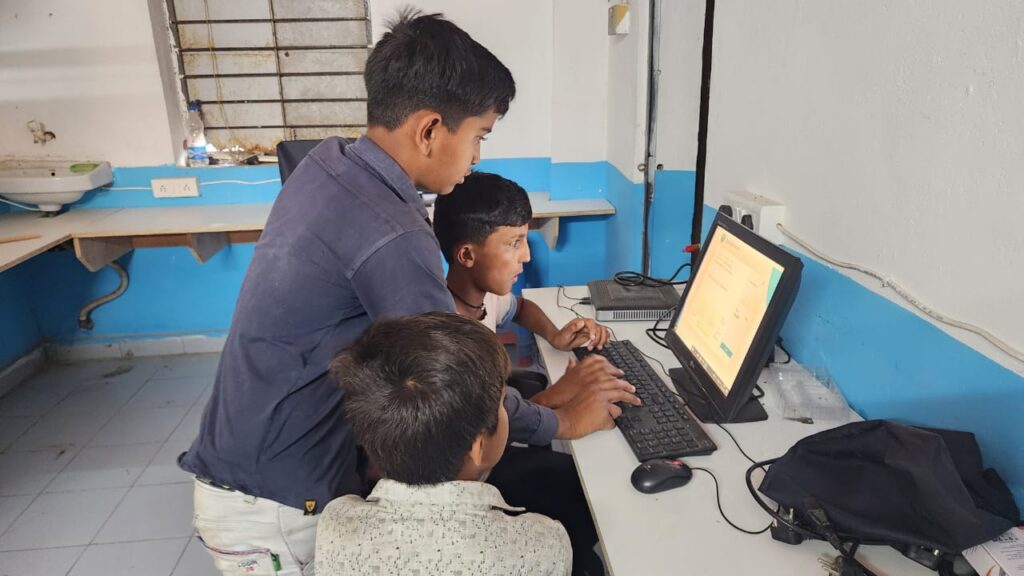When it comes to choosing the right education path for your child, many parents feel pressured to opt for prestigious programs like the International Baccalaureate (IB). The IB curriculum is widely recognized and marketed as the gold standard for academic achievement. But is it really the best fit for your child?
In this insightful conversation, Dr. Malpani explains why the National Institute of Open Schooling (NIOS) may actually offer greater benefits for Indian students — especially those seeking flexibility, personalized learning, and a stress-free educational journey. If you’re debating between IB and NIOS, this discussion will help you see why NIOS could be the smarter choice for your child’s future.

Parent: Dr. Malpani, I’m trying to choose between enrolling my child in the IB (International Baccalaureate) program or going with NIOS (National Institute of Open Schooling). Everyone keeps talking about how IB is prestigious and internationally recognized. What’s your take on it?
Dr. Malpani: That’s a great question, and I’m glad you’re exploring your options rather than just blindly following the herd. While IB has its merits, I firmly believe that for most Indian students, NIOS is often a much better choice.
Parent: Really? But IB is supposed to be a gold standard in education. Why would NIOS be better?
Dr. Malpani: The biggest advantage of NIOS is flexibility. Unlike IB, which forces students to follow a rigid curriculum with fixed deadlines and exam dates, NIOS allows students to learn at their own pace. This is especially important for students who may want to dive deeper into subjects they love or take extra time to master challenging concepts.
Parent: That sounds interesting. But isn’t structure important? What if kids get lazy or lack discipline without fixed schedules like in IB?
Dr. Malpani: That’s a common concern, but here’s the reality: self-directed learners actually develop better discipline because they learn to manage their own time and set their own goals. With NIOS, your child isn’t boxed into rigid timelines and can explore subjects more deeply without the constant pressure of deadlines and homework overload that IB often creates.
Parent: But doesn’t IB encourage independent thinking too?
Dr. Malpani: IB claims to promote critical thinking, but in practice, it often turns into a checklist of projects, essays, and assignments that overwhelm students. Students end up focusing on “completing tasks” rather than truly learning. NIOS, on the other hand, removes that burden, allowing students to focus on what truly matters — mastering concepts and gaining real knowledge.
Parent: Hmm… but IB offers a recognized international credential that helps students get into top universities. Doesn’t that give it an edge?
Dr. Malpani: That’s a common myth. Yes, IB is recognized worldwide, but so is NIOS. Indian universities — including top-tier institutions — accept NIOS qualifications for admissions. In fact, some students who pursue NIOS perform even better because they’ve had the freedom to explore their interests deeply, making them more confident and capable.
Parent: But what about global opportunities? Isn’t IB more valued for studying abroad?
Dr. Malpani: While IB does have an international reputation, NIOS students can just as easily study abroad. Admissions officers at universities look for students who can demonstrate their skills, achievements, and passion — not just which curriculum they followed. In fact, because NIOS encourages self-directed learning, students often build richer portfolios of real-world experience, which impress universities even more.
Parent: That’s surprising! I assumed IB was my child’s best shot at foreign universities. What else does NIOS offer that IB can’t?
Dr. Malpani: NIOS offers a wider variety of subjects and far greater flexibility in choosing what to study. For example, if your child is passionate about coding or design, they can focus heavily on that without being forced to complete irrelevant subjects just to meet IB’s mandatory requirements. NIOS allows students to customize their learning to suit their goals.
Parent: So, would NIOS be better for kids who struggle in traditional classrooms?
Dr. Malpani: Absolutely. NIOS is perfect for students who feel stifled by traditional schooling. It’s ideal for children who learn best through hands-on experiences, creative projects, or who need extra time to master concepts. Instead of being forced to keep pace with the class, they get to move at their own speed.
Parent: But what about social skills? Doesn’t IB provide more opportunities for teamwork and collaboration?
Dr. Malpani: That’s another misconception. NIOS students can engage in rich social experiences — they simply have more freedom to choose how they interact. Many join coding clubs, science workshops, or participate in collaborative projects outside the classroom. Since NIOS doesn’t confine students to school hours, they can pursue meaningful social connections in more dynamic ways.
Parent: So you’re saying NIOS creates more independent, self-reliant learners?
Dr. Malpani: Exactly! IB often leaves students overworked and stressed because they’re constantly racing to meet deadlines. NIOS, on the other hand, encourages students to take charge of their own learning. This autonomy is invaluable because it prepares them for life beyond school — where success depends on curiosity, adaptability, and self-motivation.
Parent: So NIOS is more about personalized learning rather than one-size-fits-all?
Dr. Malpani: Exactly. Every child is unique, and NIOS respects that. Instead of trying to cram every student into the same mold, NIOS allows students to tailor their education based on their strengths and interests. This personalized approach often helps children thrive in ways traditional schooling simply can’t match.
Parent: This is a big shift in thinking. I always assumed that a more structured program like IB was the best choice.
Dr. Malpani: It’s natural to think that way because the IB has done an excellent job marketing itself. But remember, education isn’t about prestige — it’s about what’s best for your child. NIOS empowers students to become self-directed learners who can excel in whatever field they choose — and that’s far more valuable than any diploma.
Parent: Thanks, Dr. Malpani. This really changes how I see things. I’ll seriously consider NIOS now.
Dr. Malpani: I’m glad you’re exploring your options. At the end of the day, the best education is one that gives your child the skills and confidence to thrive in the real world. If you’d like to take matters into your own hands, consider starting your own digital learning pod — your children will not get a second chance!
Start a Teach to Earn Learning Pod or contact us at contact.teachtoearn@gmail.com for more information.
